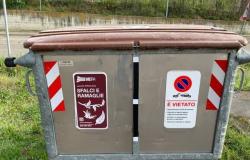There is a lack of labor in agriculture, harvesting campaigns such as tomatoes and fruit and vegetables are at risk, but irregular practices are increasing. “Flows are needed to be made more in advance, at least every six months, companies must be sure of the workers they have available to plan the season and work. And remove control obligations from agricultural companies and give them back to the relevant bodies, furthermore (for example through employment centers and others) the worker and agricultural company must be brought into contact. This was underlined by the president of Cia Agricoltori Italiani della Toscana, Valentino Berniin the conference held in Florence, entitled “Work and agriculture in Tuscany: scenarios, perspectives, proposals”.
Tuscan agriculture, where there is a shortage of thousands of seasonal workers, requires manpower, but also training and innovation. As the director of Cia Toscana recalled Giordano Pascucciwho moderated the meeting: “Since the flow decree, zero workers have arrived on the Tuscan coast, where there is the greatest demand for agricultural labour”.
“Work in agriculture is a very penalizing structural factor – highlighted the president Berni -. Our companies are often in difficulty in organizing harvesting campaigns, precisely because they do not have opportunities for manpower and management of so many productions. We must find a virtuous path that puts workers back into circulation, who are qualified and who give companies an opportunity for sustainable development, without running into unpleasant situations or having to choose to abandon types of crops precisely because the workforce is insufficient.”
And on the management of manpower, it is highlighted how gangmastering has also grown in Tuscany, and the increase in companies that use non-EU workers for agricultural services. “Agricultural companies – added Berni – are now also asked to have the task of checking what is done by those companies, not on the work they provide, but from a bureaucratic point of view and ensuring that the worker complies with all the norms. Surely agricultural companies cannot be responsible for carrying out that type of control, there must be bodies responsible for carrying out that type of control, which must operate in place of agricultural companies which must be protected and helped in producing and not burdened with bureaucracy or of obligations that only create difficulties”.
“The job market continues to grow – he said Nicola Sciclone, Irpet director -, we have recovered the work we lost during the pandemic in 2020 and in numerical terms we are at a higher number than in 2019. In terms of trends we observe a reduction in the weight of self-employment compared to employed work and a reduction in intensity in terms of days. Therefore more workers but less volume of overall hours worked, composition of work that has shifted towards more advanced classes: this also concerns agriculture which is acutely experiencing problems linked to manpower and generational turnover. We are therefore observing a decoupling between demand and supply of labour, already visible in quantitative terms in some areas such as agriculture and tomorrow it will be even more so, given that we are witnessing a sharp decline in the active population, with a contraction of the aged population work”.
Simone Cappelli, head of the Tuscany Region Labor sector, reminded us of the behavior to be followed, and that “the supervisory bodies must sanction those who do not operate in a transparent manner”. “Training is the key, a lot of it is also being done in the agricultural field”. Furthermore, the “exploitation theme is present in this legislature” he recalled.
Danilo De Lellis, head of the CIA labor and union relations office, spoke about the specifics of the agricultural sector, the protections and quality of work, and the CIA’s proposals. “Delays in the flow decree, which if it were to happen quickly, could make up for a shortage of manpower but not solve the problem. We need to schedule migratory flows based on needs and crops: an aspect that the ministry has welcomed among the CIA proposals.” And then the recruitment of manpower: “the sector must be made more attractive for young people, the image that it is not profitable should pass.”
The regional councilor for work and training, Alessandra Nardini: “Agriculture is a fundamental sector for the growth and development of Tuscany – he said – many active tenders in recent months and significant resources. We are working on an increasingly close relationship with trade unions and employers’ associations for interventions that are truly in line with the needs of individual territories and sectors. For us, the place designated for consultation is the permanent tripartite regional commission. We work on specific training to create skills: we need to encourage legal, quality and fairly paid employment. Furthermore, it is important to combat labor exploitation, which does not only concern agriculture” concluded Nardini.
Among the interventions of the round table, that of Gessica Benefortiof the CGIL Toscana confederal secretariat, which highlighted the importance of regular work and the activity of the union.
Intervention carried out with EAFRD co-financing of the 2014-2020 Rural Development Program of the Tuscany Region Submeasure 1.2
Source: CIA Tuscany




